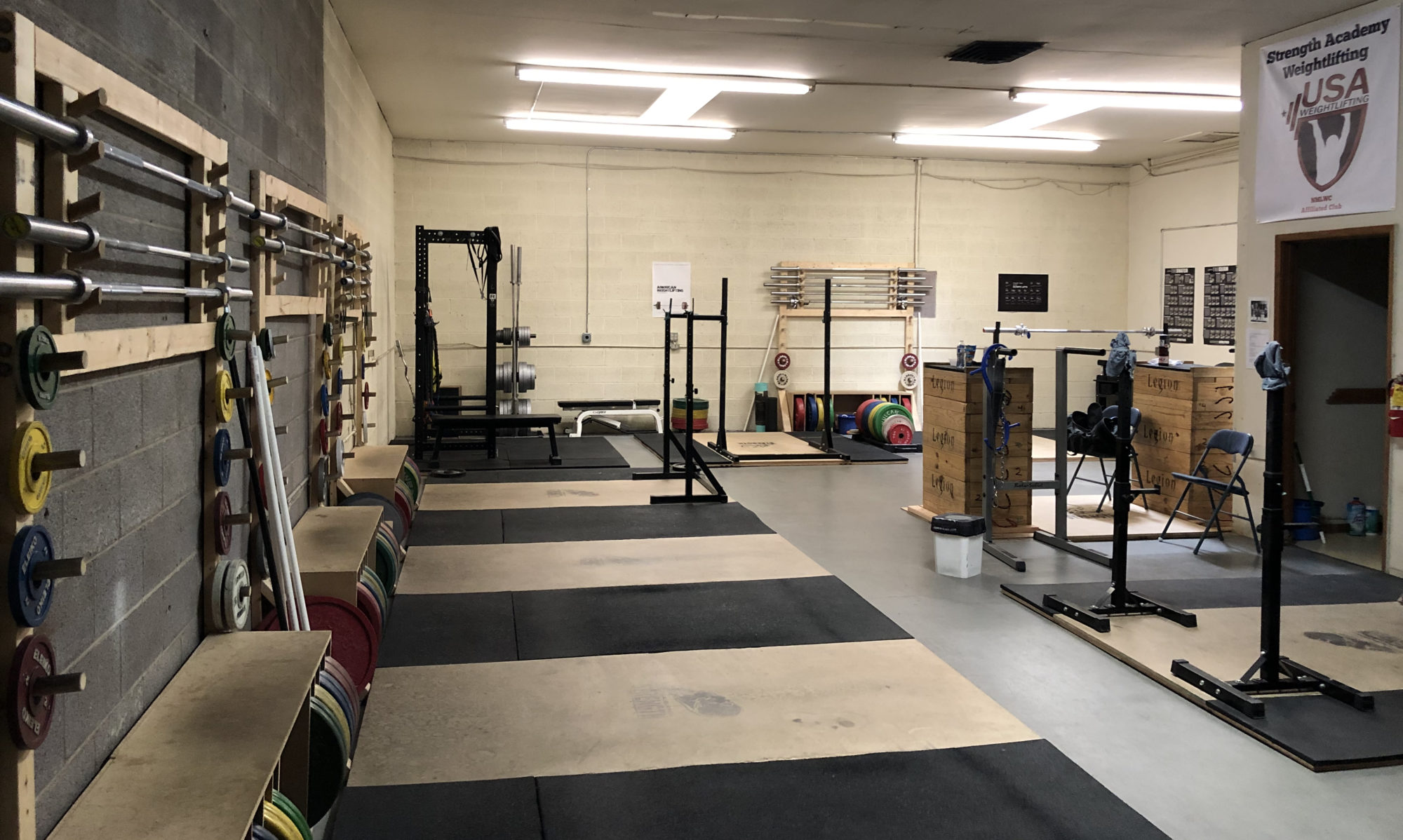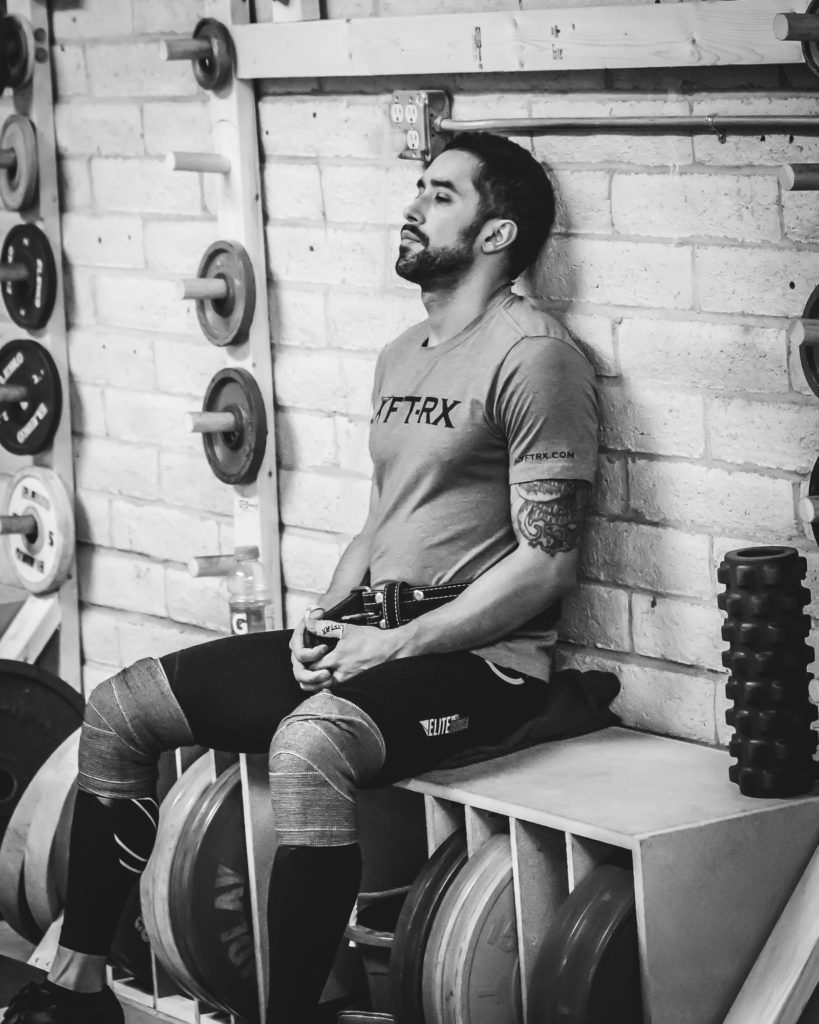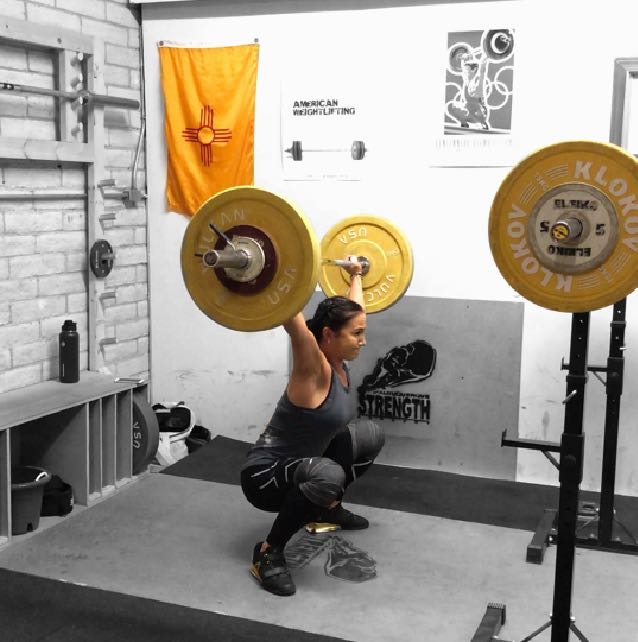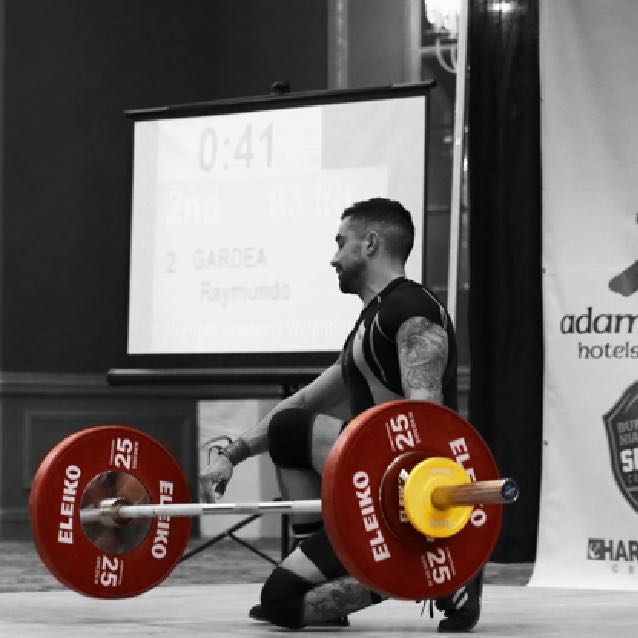Episode 9
Love and Weightlifting
I don’t know if you’ve ever been in love, but I’m cynical about it. On one hand, love is a driving factor for a lot of the population. Find somebody to love, all we need is love, do what you love, love yourself, love conquers all. First let’s delve into what happens when you fall in love with someone or something.
You get that first taste of something new, something different, something that sparks that fire of existence within. When it’s a person, you feel elated in their presence, colors seem brighter, you laugh a little easier, they can do no wrong and you want to spend every moment you can with them. You spend a lot of time learning about them, what they like, what their favorite style of coffee and eggs are, trying to love them in as many ways as possible. When it’s an activity, let’s say Weightlifting, you do the same thing, minus the coffee and eggs. You want to know as much as possible about it, do it as often as possible, try to excel at it. The PRs are continually rolling in and you are addicted to the feeling of getting stronger. This is the point in time your friends and relatives think you’re insane or it’s just a phase. This is what I refer to as the honeymoon stage, it typically lasts around 2 years, but often less. When that stage ends, and it does end, that’s when the real work begins.
I’m sure you’ve come across them, the couples that have left that honeymoon stage. They don’t hold hands anymore. They start to get annoyed at small things like which way the toilet paper faces (and yes, there is a correct direction). That cute thing they used to do now gets on your nerves so fast you can barely keep yourself from kicking them down a flight of stairs. Arguments start to bleed through the cracks of conversations. While you can’t really argue with a barbell, the frustration still sets in. You’ve learned a lot, so much you can explain it well to people and get annoyed when they still ask you how much you bench. You’ve gotten good at it, good enough to decently compete. At this point, you’ve done it so much it becomes second nature, bordering automatic. You have a routine, and a small part of you thinks it’s becoming monotonous. It starts to get more difficult to PR and it’s probable you’ve acquired some nagging injuries, or reoccurring problems that make Weightlifting a little less enjoyable. I like to refer to this stage as the drop off or burnout.
After the drop off, it can go a variety of ways. Some decide to have children to add a new dynamic to the relationship, some visit that store that has no windows with all the weird rubber toys to spice things up. This is the point where people start cheating or getting distant, they just want something different, or they feel like other people have it better. This is where things really are routine, there isn’t a lot of variation or excitement. Weightlifting has become an uphill climb with a backpack loaded with a 100kg boulder. You still show up though, but you haven’t hit a PR in a year, and you don’t see the next one in sight. You may have experienced a setback because you neglected something or got careless and ended up injured. You wonder if it’s still worth it, if that’s as far as you can go with it. You’re putting in a lot of work for little results, and the thought of moving on to something else starts to occur over and over. Somewhere deep down you don’t feel the same way you used to, but you’ve invested so much time, so a decision has to be made to keep going or throw in the towel. Showing up isn’t the hard part anymore, wanting to stay is. I refer to this stage as the grind.
The grind is the hardest thing to endure, because it isn’t glamorous. This is where that choice to stay is solidified. You have to start choosing to love that person, in spite of their flaws and annoying habits. You put in effort, and learn not to expect reciprocation, you love them anyway. It’s no different with Weightlifting. You get to a point where you choose to do it, whether you get a PR or not, because it matters to you more than a number on the bar, and you love it. What people don’t realize is that love is an action, not a feeling. If you depend on other people to hype you up, what happens when they aren’t there. If a PR is all that keeps you going, what happens when you’re older and you’ve reached or passed the limits of your potential. If you never got a PR again, would you still do it? Sometimes priorities change, and you leave, and you can come back, but don’t expect it to be the same, love rarely happens the same way twice. So what do I really think about love…falling in love isn’t always a choice, staying in love is.
This is Your Hamster Wheel
The Problem
First things first, we have to acknowledge the unnatural insanity of our modern world. Our species evolved as tribes of hunter gatherers, living communally, and working only enough to secure our next meal, on average around twenty hours a week. The rest of our time was spent within the community building relationships, playing, talking, and watching the stars. As we have progressed, we have piled on more and more work and removed a lot of our involvement in our communities. We may have split the atom and increased communication via the internet, but our needs as individuals haven’t really changed. We need physical activity, meaningful work, and a community to fit into. We can see the sickness of our current state when we see the various forms of tribalism manifesting themselves in our lives today. We are in essence a wild animal, caged in a society that barley fulfills our needs, and projects its heightened value of personal possession onto us. The memes that have replicated themselves throughout our societies are those that prize things over meaning. We live in a world where we value our possessions more than finding real contentment in our lives.
What do we do?
At least once a week I find myself in traffic, and I am punched straight in the face by the absurdity of my daily routine. Why do I really need to go through these motions every week, are they really helping me achieve a life of true meaning? Am I being an authentic human being? In those moments I have the strong urge to check out, and run away to live a simple life as Henry David Thoreau did at Walden Pond. But let’s be realistic. We cannot simply opt out of our caged existence, we have people who count on us, things we want to accomplish, new seasons of Game of Thrones to look forward to. We have to make our cage more enjoyable. We’ve all seen videos of wild animals in third rate zoos, sitting in their concrete cells, looking miserable. That is essentially where we are living today, disconnected, locked into mundane jobs, eating poor quality food, making money for our corporate masters. We need to spruce up our zoo, and enrich our environment.
Weightlifting
Animals are happiest when they have playthings in their environment, others to interact with, and a life that somewhat resembles their natural habitat. As human beings we can do this in a variety of ways, however I’m going to talk specifically about how we can use our time within the walls of the gym to enrich our lives. This is our hamster wheel, an approximation of the physicality, play and community that we’ve lost to modernity. When you are a part of a team you get more than the mere physical activity you could at a twenty four hour fitness center, you get a tribe. A group with common goals, struggling and celebrating together, becomes a family. The interactions you have with your team in real time gives us personal interactions that the social media age has taken from us. Our training sessions are group play, serious play, but play nonetheless.
Physical achievements help to build our confidence, and give us something to look forward to that gets us through the nine to five grind most of us have to deal with. They give us the strength to overcome the absurdity, a mental toughness that has to be earned in a world where we expect so much to be given to us. We can restructure our lives to maximize these real experiences that require you to be both physically and mentally present. The material world won’t understand this adjustment, for it does nothing to get you a better wardrobe, or nicer objects. But the depth of meaning is there, we are enriching our cage, making our lives more fulfilling which in the end is what matters. The relationships and strength you form within the walls of the gym will be carried with you wherever life takes you. Spit into the face of society and do your own thing; only we can decide what is truly important.
Podcast Episode 8
Podcast Episode 7
Podcast Episode 6
Podcast Episode 5
Weightlifting and the 5 Second Rule
There’s a lot of thinking in Weightlifting, and there really shouldn’t be, at least not while you’re performing a lift. The discussion of corrections and technique should happen between lifts, internalized by the Lifter, and executed when the barbell is in their hands. Part of this falls on the coach, don’t give a Lifter too many things to think about, or they end up looking like a computer with a hundred browser tabs open. Snatches are already difficult enough without having to think about: keeping the chest up, keeping the bar close, staying balanced, relaxing the arms, fully extending, pulling under, moving the feet, punching up to lock the bar in place, standing up after gaining control. It’s more confusing than trying to put together a piece of IKEA furniture. That’s why we drill, and lift, and practice over and over until things become nearly automatic. Here’s the problem, when the weights start to get a little out of your comfort zone you start to hesitate, and doubt, and…think.
I’ve seen so many people do it time after time. They’re rolling through a workout and the warmup reps look solid. They keep going up and eventually reach working weights. Things could go either way at this point depending on the percentages. If the percentages are on the lighter side, no problem, you’re comfortable with those weights. You’re cruising down a familiar street you’ve been down a thousand times. Things start to fall apart when the percentages are high or you’re going for a heavy single/1RM. Now you’re in an unfamiliar neighborhood in the middle of the night with shadows scurrying in and out of alley ways. You don’t set up the same way when it starts to get heavier, why? Nothing changed, you just added a little more weight on the bar. That high percentage or the pressure of making a PR causes you to talk yourself out of even giving the lift a good attempt. You scare yourself with all that extra thinking, that’s a main reason people Clark lifts. I really hate when people Clark the bar, if I see it happen and it’s my call, they are done, time to move on.
Weightlifting is ritualistic for many people. They set up a certain way. Some people scream like banshees or slap themselves as hard as a person belly flopping off a diving board. Most people don’t do it for the warmup, it’s usually an attempt to psych themselves up for heavier lifts. Therein lies the problem, it’s no longer in your comfort zone, you feel like you need something extra to be successful. There is nothing wrong with trying to amp yourself up, just don’t take forever to do it. I’ve watched people set up for a lift, then take twice as long as they normally would to initiate the lift. Then they miss, and act like that was going to happen all along. They sit there letting the doubt creep in, they are talking to themselves, bargaining even. It’s not something they feel like doing, because they don’t want to fail, so they reluctantly try it and it becomes a self-fulfilling prophecy. So how do you fix it?
Let me introduce you to the 5 Second Rule. No, I’m not talking about picking up and eating the food that fell on the floor 5 seconds ago, although that might be a discussion at some point if you still do it. I’m talking about the 5 second rule that a woman named Mel Robbins talks about. I heard about this rule a while ago and started implementing it in my life in as many areas as I could, including Weightlifting. The rule is this: When something pops into your head that requires an action, do it within 5 seconds. Sounds simple, but it’s not easy. It’s a tool that you have to become familiar with using, and it only works if you apply it, and it can be applied to anything and everything. Want to drink more water, get up and go fill a bottle, within 5 seconds of thinking it. See a person and want to ask them on a date, do it within 5 seconds of thinking about it. Thinking about sending a text to check up on a friend, take Nike’s advice and Just Do It. Action is the cornerstone of getting anything done. You’re rarely going to feel like doing things, but you don’t have to listen to that voice, you can act in spite of that feeling. Weightlifting requires action, obviously.
That hesitation, that conversation that you have with yourself when you’re about to attempt a lift, isn’t helping you. You only need to act, lift the barbell. 5 seconds, that’s all you should give yourself. Don’t sit there with your butt raised in the air like a stink beetle for 15 seconds. Don’t close your eyes for 20 seconds as the clock ticks away and you try to convince yourself you can do it. Do that when you’re resting between sets. Only action is required when you’re set up and ready to go, just as you would with any other lift that’s lighter than the one you’re attempting. If the 5 second rule doesn’t work for you, the problem is not the rule, it’s that you don’t want to change. You have to face the unknown, step out of your comfort zone, try something new, and risk failure. 5 seconds, that’s it. What are you waiting for?



